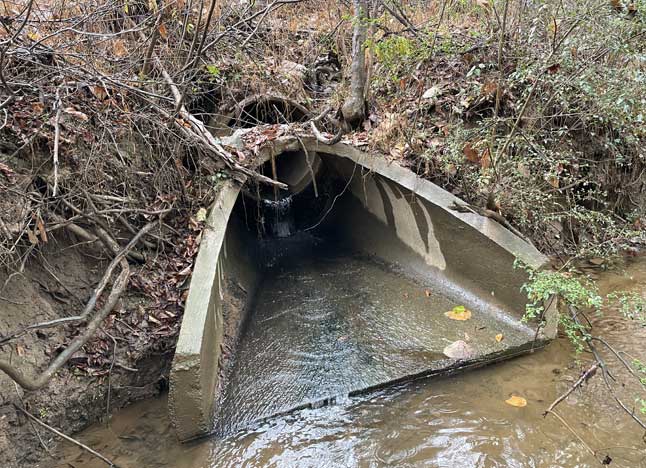Stormwater Maintenance Inspections
Importance of Routine Inspections
Stormwater maintenance inspections are essential for ensuring that stormwater infrastructure functions effectively and remains compliant with regulatory standards. These inspections help prevent blockages, structural failures, and erosion, which can lead to costly repairs and environmental damage.
Key Inspection Components
Collection Systems and Inlets
- Inlets and curb cuts must be inspected for debris accumulation and structural integrity.
- Proper drainage flow should be verified to prevent localized flooding.
Piping and Inflow Structures
- Inspect stormwater piping for cracks, blockages, or sediment buildup.
- Evaluate Flared End Sections (FES) and Mitered End Sections (MES) for erosion control and proper discharge.
Detention and Retention Basins
- Check for excessive sediment buildup and proper outlet functionality.
- Ensure vegetation management is maintained for optimal water quality and flow regulation.
Filtration and Infiltration Systems
- Assess sand filters, bio-retention areas, and infiltration systems for clogging and proper drainage.
- Verify that filtration media are functioning as designed to remove pollutants.
Underground Detention Systems (UDS)
- Inspect for structural integrity, sediment accumulation, and proper outflow.
- Ensure maintenance access points are clear and functional.
Documentation and Compliance
Documenting inspections with photos is crucial for tracking asset conditions over time and demonstrating compliance with local and state regulations. Clear records of inlet structures, piping conditions, sediment accumulation, and filtration system performance help streamline maintenance planning and regulatory reporting.
Your Stormwater Inspection Resource
Charlotte Stormwater is the leading stormwater inspection resource in the Charlotte Metro area and beyond. We provide thorough evaluations and expert recommendations to keep your stormwater systems operating at peak performance.
